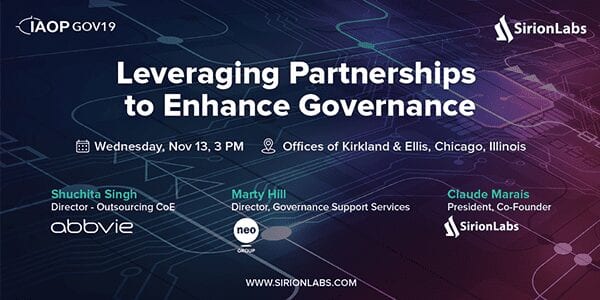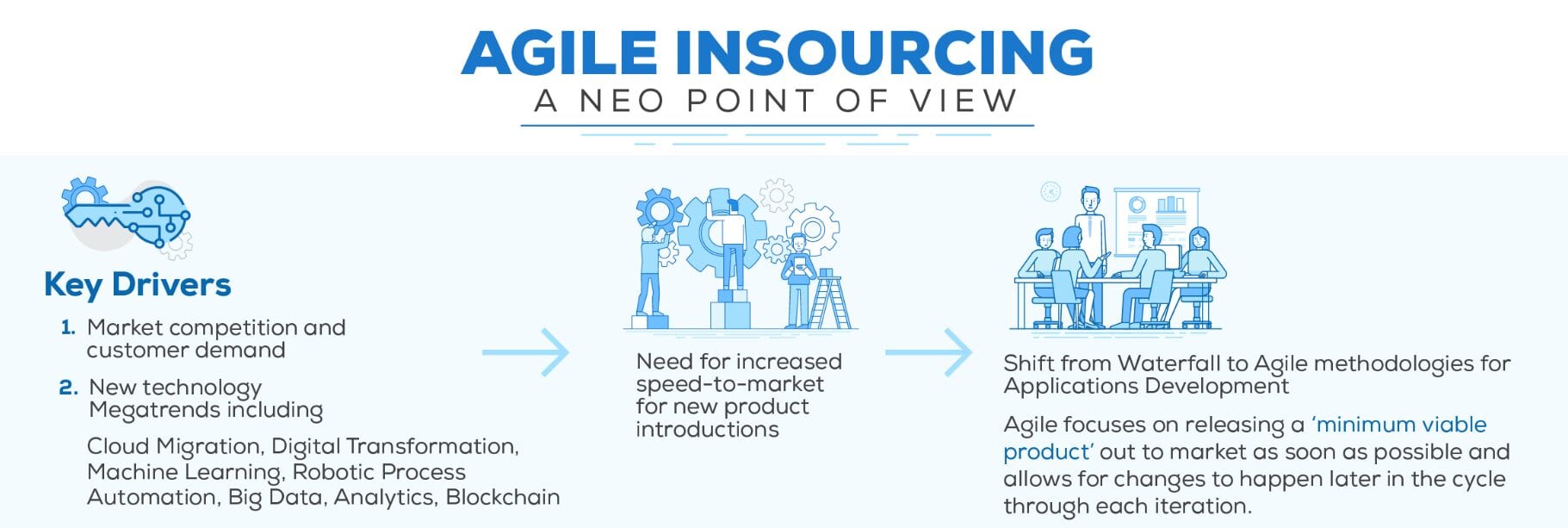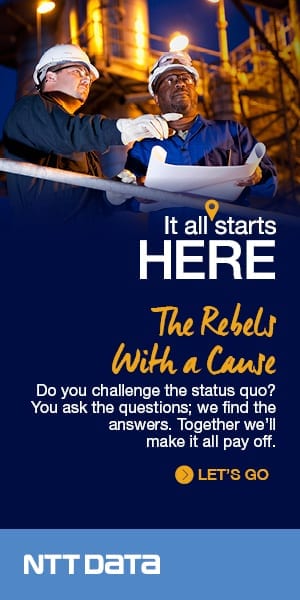GOV19 Preview: Governance in the Digital Era
Certified Outsourcing Professional Shares Why Governance Remains Crucial

Everyone needs governance, right? The ongoing crucial importance of governance, particularly in today’s digital era, was a big takeaway from OWS19. Wait no longer to dive deep into this compelling topic than November 13 when IAOP presents GOV19 in Chicago.
Governance in the digital era must be designed to ensure effective and efficient controls while supporting agile development and identifying opportunities. Potential risks can range from cyber-security threats through to compliance failures and organizational silos, and with this, the challenge of governing the design and use of technology and third-party partners becomes more acute.
 GOV19, a full-day event at the offices of Kirkland & Ellis LLP in Chicago, will include in-depth sessions and networking, case studies on successful governance, how-to lessons on implementing and integrating governance and risk programs that aligns with organizational strategic goals, tools to stay ahead of risk and prepare for unexpected challenges, and opportunities to collaborate with peers and colleagues in a non-sales environment and on a level playing field.
GOV19, a full-day event at the offices of Kirkland & Ellis LLP in Chicago, will include in-depth sessions and networking, case studies on successful governance, how-to lessons on implementing and integrating governance and risk programs that aligns with organizational strategic goals, tools to stay ahead of risk and prepare for unexpected challenges, and opportunities to collaborate with peers and colleagues in a non-sales environment and on a level playing field.
To get the governance conversation rolling, PULSE talked with COP, John A. Chamberlain, Principal-BPO Vendor Management and Global Vendor Management at MetLife on why governance matters.
P: Why does governance remain so essential, regardless of the business services model you are operating in?
The one thing a company cannot source is accountability to its customers. No matter how extensive the processes to deliver their product are sourced, at the end of the day, the company has the responsibility to make sure the quality and delivery of their product exceeds their customer’s expectations. Effective governance is a recipe of “trust, but verify.” It drives the processes that make certain that focus on the customer outcomes remains strong no matter how strong the relationships between the company and the supplier becomes.
 P: How has digital, automation and other new technology changed governance requirements?
P: How has digital, automation and other new technology changed governance requirements?
Individuals responsible for governance must have the capacity to understand technical solutions, as well as possess the business acumen, to be able to recognize the ingredients of an effective system and build comprehensive oversight to monitor its continued operation.
P: How do partnerships and collaboration improve governance outcomes?
You get the best results when the company and its suppliers can align to common goals. This type of relationship certainly allows those shared goals to develop.
P: What skills and expertise do COPs bring to the table that are valuable to governance?
Certified Outsourcing Professionals bring such important skills as the experience to manage the overall supplier relationship, the ability to identify and mitigate risk and the negotiation skills needed to maximize the value of the relationship.
P: You recently completed the COP Master Class and Governance Workshop held in July at DePaul in Chicago. Was there a takeaway or “a-ha” moment from your COP Master Class that you are bringing back to your organization?
I brought back to my organization the details shared around all the different sourcing approaches and the pros and cons of each.







